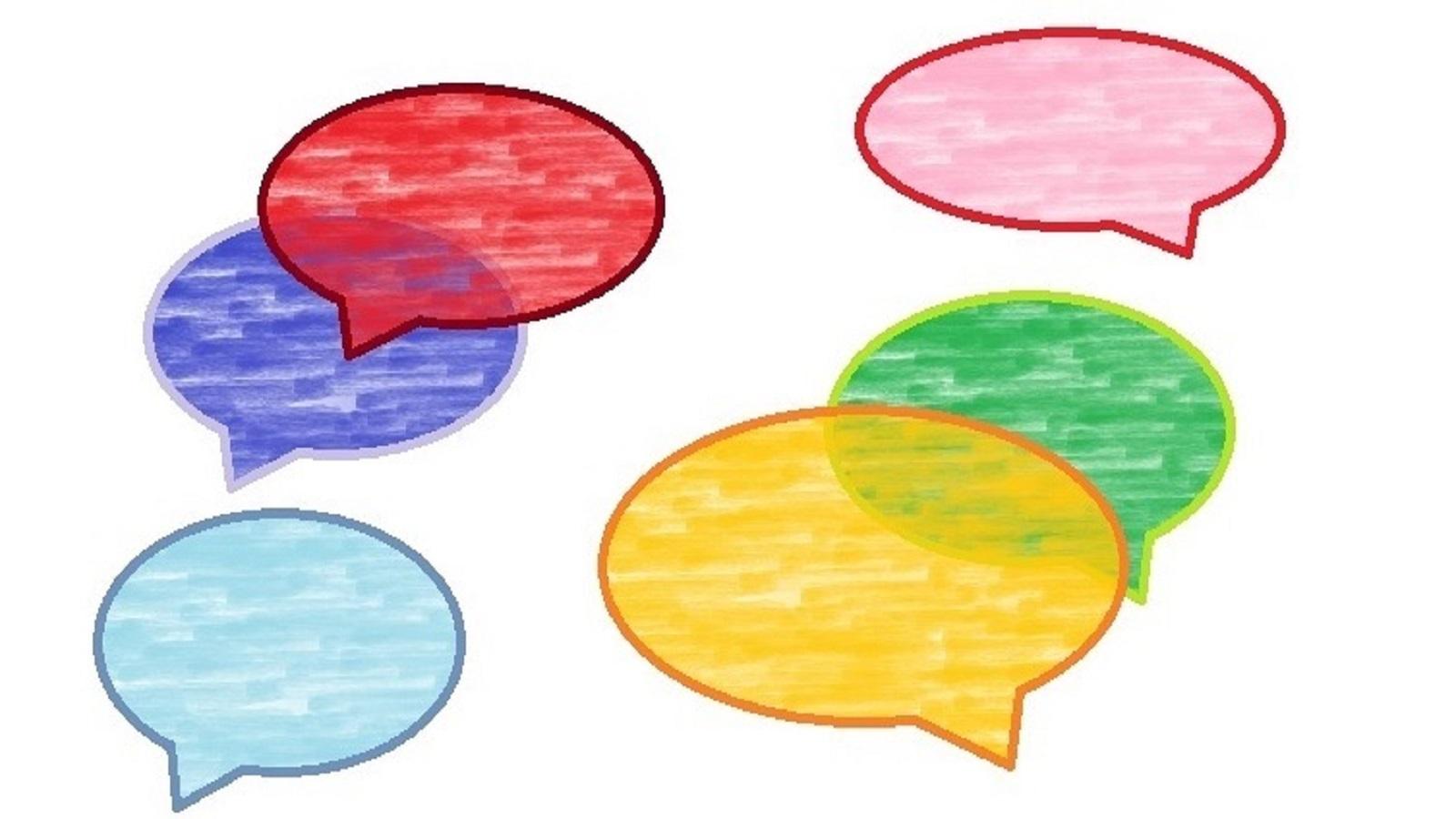From Japan to Tanzania, cultures all over the world have stereotypes about how women speak
There has been a lot of discussion as of late about the ways that young women speak.
From comment sections to op-eds and hot takes, critics assert young American women have certain vocal tics that are not only annoying, but that can even discredit the speaker. Ann Friedman, a freelance journalist, has seen this firsthand. She hosts a podcast called "Call Your Girlfriend." She and her co-host were repeatedly told they were "unlistenable" because they say "like" and "um" too frequently, and had too much "vocal fry" — a phenomenon where the speaker holds out vowels in the back of their throat.
Young women have also been critiqued for apologizing too frequently, for uptalk — when the speaker ends every sentence like a question, and a host of other vocal tics that are seen as particularly female.
"All of these things are sort of being pointed out as tics that are particular to women," said Friedman, "And are things that women need to watch out for if they need to be or want to be taken more seriously.” Friedman recently wrote a column titled "Can We Just, Like, Get Over the Way Women Talk?" arguing we should listen not to how women talk, but to what they're actually saying.
But Americans are not alone in the conviction that young women speak differently.
Anthropologist Mary Good researches young women's speech patterns in the islands of Tonga, in the South Pacific. In her work she has seen stereotypes about the ways women speak: "People tend to say that young women gossip more than young men. I don't know that it's necessarily true. But it is one of the things that older people talk about in young people's speech." This same stereotype, that women gossip more, has been observed in Napoli, Italy.
These gendered generalizations of speech exist in all parts of the world.
In Japanese, there are polite and non-polite forms for almost every verb. Women historically used these polite endings more frequently. Though, in recent years, young women have been dropping these polite forms, and there is the stereotype that younger women are "rude."
In Tanzanian beauty pageants, women are judged partially on the "purity" of their language — they are supposed to speak only Swahili or only English, because mixing the two would not be as feminine.
Or in Spain, the stereotype is that women speak at a much higher register and use diminutives like the endings -ito or -illa much more frequently.
“I think another important thing to look at when you’re considering differences in language and ways of speaking for men and for women, is to back up and say how are we valuing those ways of speaking if they do really exist?” said communications professor Sherry Bowen.
Robin Lakoff, a linguist who pioneered the study of language and gender, argues that the valuing of certain speech patterns often just comes down to sexism: “In every language that we’ve looked at, there are things that are identified as what men do, and that are identified as what women do. And usually, more often than not certainly, the things that are identified as what women do are the ones people look down on and call bad ways of talking, whatever they are.”
Additionally, in looking at the statistics, linguists argue men and women do not even speak that differently. Because it’s clear that American men do use vocal fry, or “like,” or “you know.” Spanish men do use diminutives. Japanese men do drop polite verb forms. Clearly the stereotypes are not entirely accurate.
"If someone doesn’t take you seriously, it is probably their own perceptions of you as a woman, or of speech patterns they associate with women," says Friedman. "And I think, like, those are big entrenched problems we don’t solve by saying ‘stop saying like.’”
We want to hear your feedback so we can keep improving our website, theworld.org. Please fill out this quick survey and let us know your thoughts (your answers will be anonymous). Thanks for your time!
